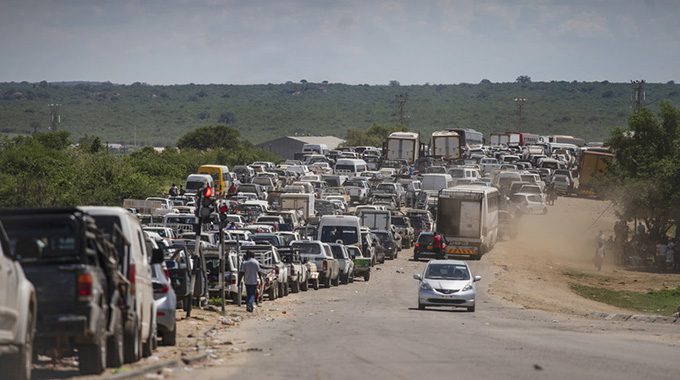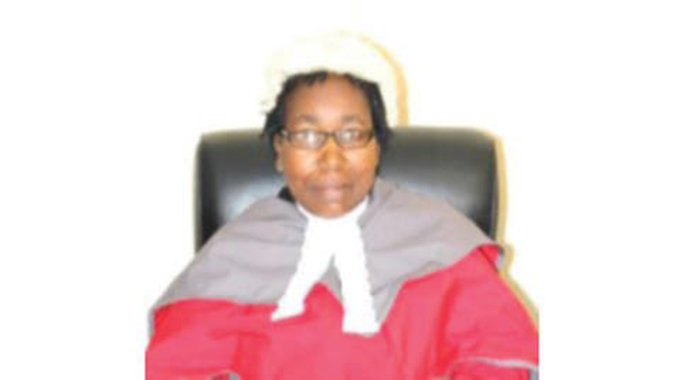Beitbridge’s exponential growth, a mismatch for service delivery demands

Thupeyo Muleya
Beitbridge Bureau
The story of Beitbridge is an exponential growth that does not correspond to demand for service.
It is mainly an expansion in terms of population numbers, but highly unmatched by the availability of public amenities.
Over the years, the border town has tremendously developed in terms of population and infrastructure growth, especially in the last decade.
However, very little has happened in areas around the upgrading of social amenities, including health institutions.
The worst affected facility is the 140-bed district hospital which is a referral centre for a population exceeding over 250 000 locals.
The referral hospital is already overwhelmed by patients coming from 16 primary health care centres.
In addition, it is also catering for at least 13 000 people who pass through the town in transit daily.
These people come from several places in the country, the Sadc region and neighbouring districts which include Gwanda and Mwenezi.
It is understood that although other facets are growing in the town, the health facility is currently operating with a 1990s staff establishment.
This status quo has resulted in human and material resources to cater for patients being overstretched.
By mere location at an important Sadc transit point, the country’s busiest port of entry has seen increased annual population growth and things are getting more complicated on a daily basis.
The District Medical Officer, Dr Lenos Samhere, told the Matabeleland South Civil Protection committee recently that there was an urgent need to review the state of affairs.
The CPU team led by then provincial development coordinator, Mrs Sithandiwe Ncube, had visited the border town to assess the state of affairs of selected facilities to handle Covid-19 related cases.
“We appreciate the Government’s efforts to increase resources and staff to the hospital during this period where we are all focusing on containing the spread of the coronavirus pandemic,” said Dr Samhere.
“However, the hospital is strained in terms of resources due to the increased demand for services and its location in a transit town. You will note that we are having an old staff establishment model which has not been reviewed for some time.”
Dr Samhere said they were handling an average of 350 deliveries monthly, which is more than what the provincial and other district hospitals were handling.
“We are in the range of major referral centres like the United Bulawayo Hospitals,” added Dr Samhere.
The senior medical practitioner in the district was of the view that the state of affairs at the hospital was also affecting resources allocation from national Government.
The official appealed to the CPU to push for the upgrading of the institution and allocation of more resources in line with obtaining demands.
Dr Samhere said their staffers were also facing serious accommodation challenges due to limited space at their few allocated houses.
When the first Covid-19 cases hit the country last year, many senior government officials visited the border town to assess the facilities and the referral hospital was chosen for an upgrading.
This then saw the female ward being upgraded to accommodate 30 beds for critical cases.
At some point there was a suggestion from senior government officials that the Ministry of Health and Child Care would send a team to assess the situation at Beitbridge following pleas by local residents and legislators, little progress has been made on the ground.
However, the said team is yet to come.
The hospital is faced with a litany of other challenges including shortages of staff accommodation, power supply, water supply, theatre equipment such as autoclaving, a partially functionally mortuary that carries 37 bodies.
This is against the fact that the Registrar General Office process close to 70 burial orders monthly and some bodies stay longer than necessary in the mortuary, especially those brought to the facility by police for criminal investigations.
A further 400 burial orders are processed for those who would have died in South Africa and are repatriated into the country.
Those intended for burial in Beitbridge district will have to make use of private morgues locally.
Hospital authorities need close to $500 000 to service the Government mortuary that carries the burden of the whole district, country and Sadc region.
In November 2018, the hospital authorities had to suspend operations at the mortuary as a result of a wave of power outages.
In fact, the acute resource shortages at the health institution, have become perennial due to the work load which is not in tandem with national budget allocations.
Given the current scenario, it will be wise for the government to upgrade the health institution in line with the demand and the town’s transformation into a medium city.
The Covid-19 pandemic has created an ideal opportunity for Zimbabwe to look at home-grown solutions and rescue people in its southern district, which is somehow one of its major cash cows.
It is also high time for the central government and its partners establish two polyclinics in the two constituencies (East and West) to relieve the sole referral centre.
In some instances, those people living in Beitbridge West are relying on Manama Hospital in Gwanda district, while those in the east prefer Chiredzi District hospital since they were within 60km of their reach.
The furthest distance point between the villagers and Beitbridge referral hospital is between 120km and 135km.
There is also a need for authorities to urgently fix the problems bedevilling the mortuary and invest in solar energy to power the hospital.
Essentially, while recording significant population growth either temporary or permanently, the healthcare diary of this important centre of social and economic activity remains in a sorry state.









Comments